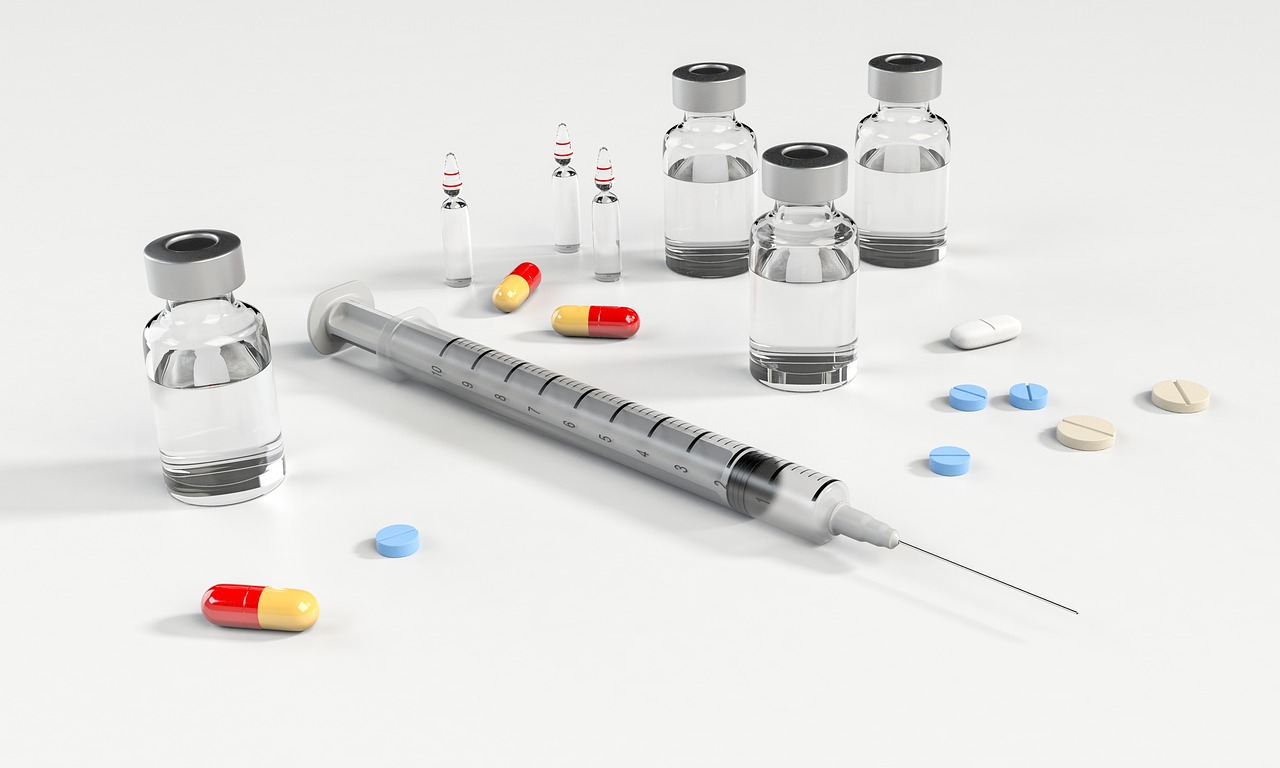Are you curious about the benefits of B12 supplementation? Wondering how it actually works? In this article, we will explore the fascinating world of B12 supplementation and uncover the secrets behind its effectiveness. We will delve into the science behind B12 absorption, metabolism, and the role it plays in our overall health. Get ready to unlock the wonders of B12 and discover the incredible ways it can enhance your well-being. So, grab your favorite beverage and let’s embark on this adventure together!

This image is property of pixabay.com.
Understanding Vitamin B12
Function of Vitamin B12 in the body
Vitamin B12, also known as cobalamin, is an essential nutrient that plays a crucial role in various bodily functions. It is responsible for the production of red blood cells, DNA synthesis, and the proper functioning of the nervous system. B12 is also involved in the metabolism of fats and carbohydrates, as well as supporting brain health and maintaining healthy nerve cells.
Natural sources of Vitamin B12
While Vitamin B12 is primarily found in animal-based products such as meat, fish, eggs, and dairy, it can be challenging for vegetarians and vegans to obtain sufficient amounts from their diet alone. Some plant-based foods, such as nutritional yeast and fortified plant-based milk products, can provide B12, but it is often recommended for those following a plant-based diet to consider supplementation or fortified foods to meet their B12 needs.
Signs of Vitamin B12 deficiency
A deficiency in Vitamin B12 can lead to various health problems. Early signs of deficiency include fatigue, weakness, and tingling sensations in the hands or feet. If left untreated, B12 deficiency can lead to more severe symptoms such as anemia, depression, memory problems, and even nerve damage. It is essential to be aware of these signs and seek medical advice if you suspect a B12 deficiency.
Vitamin B12 Deficiency
Causes of B12 deficiency
Several factors can lead to Vitamin B12 deficiency. One common cause is an inadequate dietary intake, especially among individuals following a vegan or vegetarian diet. Other causes include malabsorption issues, such as pernicious anemia or gastrointestinal disorders that affect the body’s ability to absorb B12 effectively. Certain medications and surgeries can also interfere with B12 absorption, leading to deficiency.
Impact of B12 deficiency on health
When the body is deficient in Vitamin B12, it can have a significant impact on overall health. The lack of B12 affects the production of red blood cells, leading to anemia. This can result in symptoms like fatigue, paleness, and shortness of breath. B12 deficiency can also affect the nervous system, leading to symptoms like numbness or tingling in the hands and feet, difficulty walking, memory problems, and even mood disturbances.
Groups at risk of B12 deficiency
Certain populations are more susceptible to Vitamin B12 deficiency. Vegetarians and vegans who do not supplement or consume fortified foods are at higher risk due to the limited availability of B12 in plant-based sources. Older adults also have a higher risk as they may have decreased stomach acid production, reducing the absorption of B12. Individuals with gastrointestinal disorders, such as Crohn’s disease or celiac disease, are also at risk due to impaired absorption.
The Need for B12 Supplementation
Who needs B12 supplements?
While a well-rounded diet can provide adequate Vitamin B12 for most individuals, some populations may benefit from supplementation. Vegetarians and vegans, as well as older adults, are advised to consider B12 supplementation due to their higher risk of deficiency. Additionally, individuals with certain medical conditions or those who have undergone certain surgeries that can affect B12 absorption may require supplementation.
The benefits of B12 supplementation
Supplementing with Vitamin B12 can have numerous benefits for overall health. Not only does it help prevent deficiency-related symptoms such as anemia and nerve damage, but it also supports cognitive function, improves energy levels, promotes a healthy metabolism, and may even support mood regulation. B12 supplementation can be especially beneficial for those following a plant-based diet, as it ensures they meet their B12 needs.
Understanding dietary guidelines
When considering B12 supplementation, it is essential to understand the recommended dietary guidelines. The Recommended Dietary Allowance (RDA) for adults is 2.4 micrograms per day. However, depending on individual needs and circumstances, higher doses may be necessary. It is always advisable to consult with a healthcare professional to determine the appropriate dosage for supplementation.
Forms of B12 Supplements
Types of B12 supplements
Vitamin B12 supplements are available in various forms. The most common types include cyanocobalamin, methylcobalamin, and hydroxocobalamin. Cyanocobalamin is the synthetic form of Vitamin B12 and is widely used due to its stability. Methylcobalamin and hydroxocobalamin are the active forms that are readily absorbed and utilized by the body. Both options are suitable for supplementation, and the choice between them depends on individual preferences and specific health needs.
How to choose the right B12 supplement
When choosing a B12 supplement, it is important to consider factors such as the form of B12, dosage, and additional ingredients. Depending on dietary restrictions or preferences, individuals may prefer vegan-friendly supplements. It is also crucial to select a reputable brand that undergoes third-party testing and adheres to Good Manufacturing Practices (GMP) to ensure product quality and safety.
Oral supplements vs. injections
B12 supplements can be taken orally or administered via injections. Oral supplements, such as capsules or sublingual tablets, are the most common and convenient form of B12 supplementation. They are readily available, easy to use, and generally well-tolerated. Injections, on the other hand, are mainly reserved for individuals with severe B12 deficiency who may have issues with absorption. Injections provide direct absorption into the bloodstream and can quickly correct deficiencies.

This image is property of pixabay.com.
How Does B12 Supplementation Work?
Absorption of B12 supplements
When taken orally, B12 supplements are absorbed in the small intestine. The process of absorption requires intrinsic factor, a protein produced in the stomach, which binds to B12 and enables its absorption. However, certain individuals may have reduced intrinsic factor production or other absorption issues, leading to a lower absorption rate. This is why higher doses of B12 supplements may be necessary for those with impaired absorption.
The role of B12 supplements in improving health
B12 supplementation plays a vital role in improving overall health by preventing and treating deficiencies. Adequate B12 levels support the production of healthy red blood cells, maintain proper nerve function, and promote optimal brain health. By ensuring sufficient B12 intake through supplementation, individuals can reduce the risk of anemia, nerve damage, and other deficiency-related health problems.
Time frame for seeing benefits of B12 supplementation
The time frame for experiencing the benefits of B12 supplementation may vary depending on individual factors such as the severity of deficiency and the dosage of the supplement. In some cases, individuals may start noticing improvements within a few weeks of beginning supplementation, especially in terms of increased energy levels and reduced symptoms of deficiency. However, it may take longer to see improvements in other areas, such as nerve health or cognitive function. Consistency and regular monitoring of B12 levels are essential for determining the effectiveness of supplementation.
Safety and Side Effects of B12 Supplementation
Understanding potential side effects
Vitamin B12 supplementation is generally safe and well-tolerated. However, some individuals may experience mild side effects, including nausea, diarrhea, and stomach discomfort. These side effects are usually temporary and can be minimized by taking B12 supplements with food or adjusting the dosage. It is important to note that extremely high doses of B12 supplements are not recommended as they can lead to adverse effects.
How to manage side effects
If you experience side effects from B12 supplementation, there are several strategies to manage them. Taking the supplement with food can help reduce gastrointestinal discomfort. It may also be helpful to start with a lower dose and gradually increase it over time to allow your body to adjust. If side effects persist or worsen, it is advisable to consult with a healthcare professional for further guidance.
Guidelines for safe use of B12 supplements
To ensure the safe use of B12 supplements, it is important to follow recommended guidelines. Firstly, consult with a healthcare professional to determine the appropriate dosage for your specific needs. It is also advisable to choose reputable brands that undergo third-party testing and adhere to quality standards. Regular monitoring of B12 levels through blood tests is essential to track progress and adjust dosage if necessary.

This image is property of pixabay.com.
Getting the Most Out of B12 Supplements
Best time to take B12 supplements
While there is no specific best time to take B12 supplements, many individuals find it convenient to take them in the morning with breakfast or with another meal to avoid any potential digestive discomfort. Others prefer taking it in the evening to enhance absorption during sleep. Ultimately, the most important factor is consistency in taking the supplement daily to maintain a steady intake of B12.
Dietary considerations for B12 absorption
To optimize B12 absorption, it is beneficial to include foods that support the process. Consuming adequate amounts of foods high in folate, such as leafy green vegetables and legumes, can help support B12 metabolism and absorption. Additionally, maintaining a balanced diet that includes other essential nutrients, such as iron and vitamin C, can also contribute to optimal B12 absorption.
Interactions with other medications
It is important to be aware of any potential interactions between B12 supplements and other medications. Certain medications, such as proton pump inhibitors or metformin, can interfere with B12 absorption or increase the risk of deficiency. If you are taking any medications, it is advisable to consult with a healthcare professional to ensure there are no adverse interactions and to determine the best way to supplement with B12.
B12 Supplementation for Specific Conditions
B12 supplementation in pregnancy
Pregnant women have an increased need for Vitamin B12 to support the healthy development of the fetus and prevent pregnancy complications. Adequate B12 levels are essential for fetal brain and nervous system development and can contribute to reducing the risk of birth defects. Pregnant women should consult with their healthcare provider to determine the appropriate dosage and ensure optimal B12 intake during pregnancy.
B12 supplementation in older adults
As mentioned earlier, older adults are at a higher risk of B12 deficiency due to decreased stomach acid production and potential absorption issues. B12 supplementation can be particularly beneficial for older adults to prevent anemia, reduce the risk of nerve damage, and contribute to overall cognitive health. Regular monitoring of B12 levels and consultation with a healthcare professional are essential to ensure appropriate supplementation.
Managing medical conditions with B12 supplementation
For individuals with certain medical conditions, B12 supplementation may play a crucial role in managing symptoms and supporting overall health. Conditions such as pernicious anemia, Crohn’s disease, or celiac disease can impair the body’s ability to absorb B12 effectively, making supplementation necessary. Additionally, individuals with mental health conditions such as depression or cognitive decline may also benefit from B12 supplementation, as it can support brain health and improve symptoms.

Monitoring Your B12 Levels
Importance of regular check-ups
Regular check-ups and monitoring of B12 levels are essential to ensure optimal health and detect potential deficiencies. Routine blood tests can provide insight into your B12 levels and help determine if supplementation is necessary. It is recommended to discuss your B12 status with a healthcare professional to establish an appropriate testing schedule based on your individual needs and risk factors.
Reading and understanding your B12 levels
B12 levels are typically measured in picograms per milliliter (pg/mL) or picomoles per liter (pmol/L). The normal range for B12 levels can vary depending on the laboratory and testing method used. It is essential to discuss your results with a healthcare professional who can interpret them accurately and determine whether supplementation is recommended or if further investigation is needed.
Next steps if your B12 levels are low
If your B12 levels are low, it is crucial to take appropriate action to correct the deficiency. Your healthcare professional may recommend starting or adjusting B12 supplementation to achieve optimal levels. They may also investigate the underlying cause of the deficiency, such as malabsorption issues or dietary factors, to address the root cause and prevent future deficiencies. Regular monitoring and follow-up appointments are important to track progress and ensure that B12 levels are maintained within the optimal range.
Recent Research on B12 Supplementation
The latest studies into B12 supplementation
Ongoing research continues to shed light on the benefits and effectiveness of B12 supplementation. Recent studies have explored the potential role of B12 supplementation in improving cognitive function, reducing the risk of age-related macular degeneration, and even supporting fertility. These studies contribute to a growing body of evidence supporting the importance of adequate B12 intake and the potential benefits of supplementation.
Long-term effects of B12 supplementation
Long-term B12 supplementation has been shown to be safe and effective for preventing and treating deficiencies. Some studies have also suggested that long-term supplementation may have additional benefits for brain health and cognitive function, particularly among older adults. However, further research is needed to fully understand the long-term effects of B12 supplementation and its potential role in preventing age-related diseases.
Future of B12 supplementation
As research in the field of nutritional science continues to evolve, the future of B12 supplementation looks promising. Advances in technology and improved understanding of B12 metabolism may lead to more targeted and efficient supplementation options. Additionally, further research into the potential benefits of B12 supplementation for specific populations or medical conditions may help optimize health outcomes and improve overall well-being.




